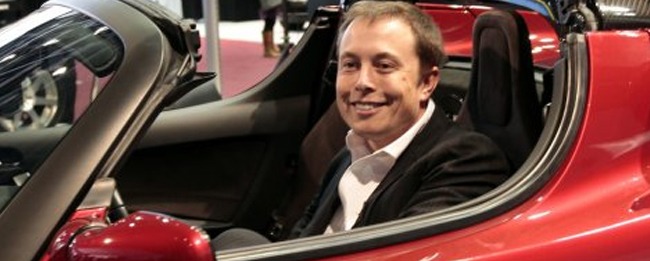“Elon Musk] is very much the person who, when someone says it’s impossible, shrugs and says, ‘I think I can do it.”
Max Levchin, PayPal Co-Founder
“Failure is an option here. If things are not failing, you are not innovating enough.”
Elon Musk
“I always had an existential crisis, trying to figure out ‘what does it all mean?’ I came to the conclusion that if we can advance the knowledge of the world, if we can expand the scope and scale of consciousness, then, we’re better able to ask the right questions and become more enlightened. That’s the only way to move forward.”
Elon Musk


As I have mentioned before. I met so many celebrities when I was growing up—mainly thanks to my unusual mother—that I have little time for our celebrity culture. When you have seen enough celebs close up and personal, they become no more than people—some good and some decidedly less so.
Some deserve respect in their own right—both because of their achievements and because of their qualities as people. They do not deserve respect merely for being celebrities.
In fact, I regard our obsession with celebrities as as extraordinarily destructive. It distracts, it distorts, it deludes, it debases—and it certainly dumbs us down. It is a key component of the barrage of commercial and political propaganda which keeps us from focusing on the very real issues and opportunities which confront us.
For instance, if faced with two speakers, we have been conditioned to pay more attention to (and, by implication, give more credence to) the celebrity rather than reach a conclusion based upon the issues.
This is bizarre, when you think about it. It means that celebritization (Is there such a word?) has been turned into a classic reality distortion tool. More fool us for succumbing.
Having declared my prejudices, I will now confess that I do have my heroes—though I hope my regard for them is rooted in their achievements rather than name recognition. Some are well known to the general public. The economists and authors I admire mostly have scant national recognition—subject to some exceptions—though most have their own followers in their specialized fields (as I do too, now I think about it).
Elon Musk is pretty much in a league of his own. To me he is the epitome of what the U.S. could, and should, be (visionary, innovative, competitive, customer oriented, trustworthy, inclusive, socially concerned)—whereas Comcast is a perfect example of where much of U.S. business culture is (politically connected to the average voter’s disadvantage, monopolistic, overpriced, inefficient, untrustworthy, customer hostile, socially hostile—and giving bad service).
The following are some extracts from an article on Musk in incomediary.com The whole piece is worth reading.
Musk only starts companies in emerging fields
In 1998, that emerging field was the Internet. Zip2 (and later PayPal) both succeeded thanks in large part to getting in on the ground floor of Internet boom.
Next, Musk identified three more emerging industries and got in on the ground floor on all three. SpaceX (space transportation), Tesla Motors (electric cars), and SolarCity (solar power) have all benefited from the high growth potential and low-competition that comes with being a pioneer.
To pivot in business is to change direction while keeping one foot grounded where you started.
That’s exactly what Elon Musk did when he turned X.com (online bank) into PayPal (a global payment transfer provider). The change rendered X.com totally unrecognizable, but Musk was able to use much of its resources. Those resources included an innovative method of securely transferring money online through the recipients email address, which Musk had developed himself.
The pivot was a gargantuan success: once PayPal became featured on Ebay, its use exploded.
Can you imagine if Musk had stayed running PayPal? He’d still be rich and successful – but there would be no electric sports cars or rocket ships to his name. Thankfully, Musk long ago learned how to extricate himself from his own startups.
In 1995, Musk founded Zip2 (an online city guide) and in 1998 he sold it to Compaq for $307 million. Musk’s portion was $22 million. He was 28-years-old and free to do whatever he wanted.
That meant founding X.com. Again, Musk jumped ship after a couple of years, selling PayPal for to Ebay in 2002 for a cool $1.5 billion. For his trouble, Musk got $165 million in Ebay stock. Now Musk had enough personal capital to start the pair of truly extraordinary businesses that he still runs today.
Both times Musk cashed in a company for millions of dollars, he invested at least 45% of his earnings back into a brand new business within the calendar year.
- $10 million of the $22 million Musk made from the sale of Zip2 went to founding X.com (later PayPal).
- $100 million of the $165 million made from the sale of PayPal went to founding SpaceX.
Musk also invested heavily in Tesla Motors (33,076,212 shares) and SolarCity (20,724,991 shares). It’s the ownership of these three companies that constitutes the vast majority of Musk’s $6.7 billion estimated wealth.
No comments:
Post a Comment